Transitional Justice
Interview by Richard Marshall
[Images by Goya]
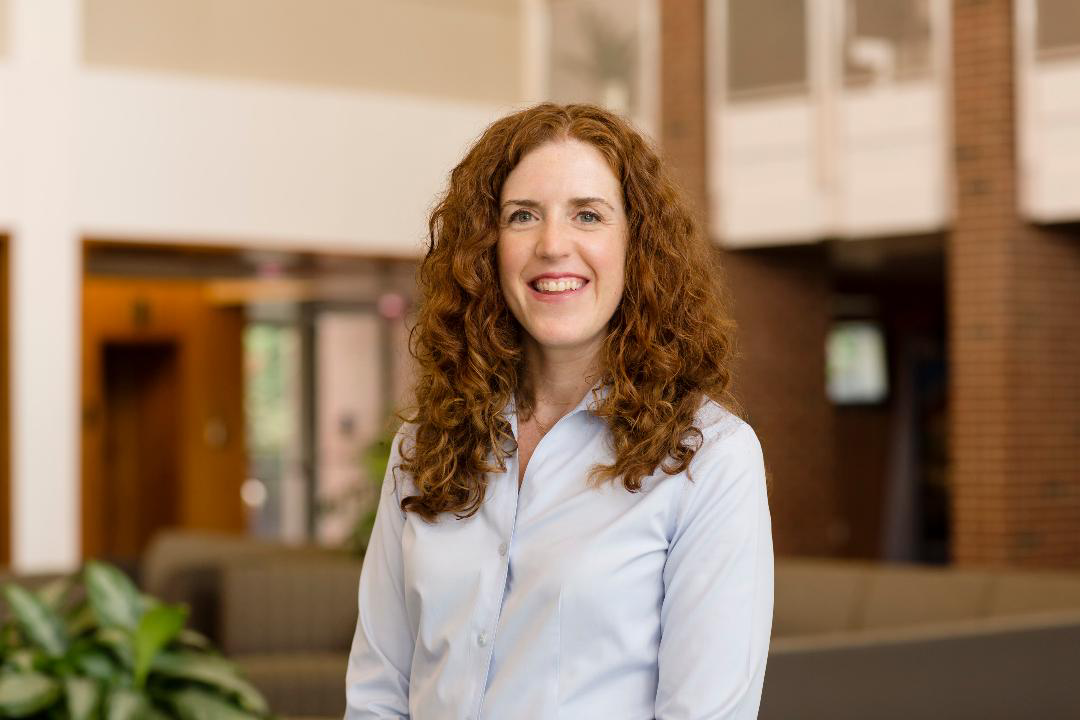
'In my work I defend the view the transitional justice is its own type of justice, not reducible to the claims of retributive, corrective, or distributive justice or some combination of these and other kinds. My argument for this view draws on the idea of circumstances of justice first articulated by David Hume.'
'In my view, there can be modes of accountability for perpetrators of wrongdoing that are not punishment but which do contribute to societal transformation and do treat perpetrators appropriately. Which mode of accountability is defensible in a given context may be influenced by what victims want vis-à-vis perpetrators, but it is not the case that victims always want punishment.'
'Compromises may need to be made when prioritizing which dimension of relational transformation to pursue (e.g., whether you pursue fostering conditions for trust, enhancing or developing the rule of law, and/or genuine opportunities to avoid poverty). The dimensions of relational transformation need not be conceptualized as fundamentally incompatible; indeed at times they can be mutually reinforcing.'
'Taking seriously context and talking explicitly about limits of application is in keeping with philosophers like Hume and the later John Rawls; it is not necessarily heading down the road of relativism. It rather reflects the need to understand how context necessarily shapes the contours of a moral problem which principles of justice provide guidance in addressing.'
Colleen Murphy is a Professor in the College of Law and the Departments of Philosophy and Political Science at the University of Illinois at Urbana-Champaign, Director of the Women and Gender in Global Perspectives Program in International Programs and Studies, and Affiliate Faculty of the Beckman Institute. Here she discusses transitional justice, the moral evaluation of the choices these transitional communities make in dealing with wrongdoing, the case of South Africa, Mandela, Tutu, Ubuntu, “traditional” expectations of justice, punishment, whether amnesty is merely pragmatism and not justice at all, the retributive principle as a principle of justice, restorative justice and why its not transitional justice, political reconciliation, some emerging general principles and why transitional justice challenges traditional notions of justice everywhere.
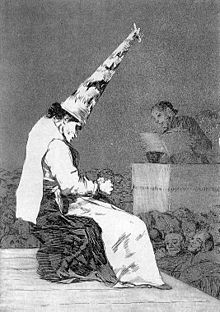
3:AM: What made you become a philosopher?
Colleen Murphy: The most concise answer is: my first philosophy course, an undergraduate Introduction to Philosophy class at the University of Notre Dame taught by Alasdair MacIntyre, which I took exactly 25 years ago this fall. But the road from that course to philosophy professor was paved with consideration of multiple other possibilities.
MacIntyre’s scholarship and subsequent mentorship have had a very significant impact on my career. After MacIntyre’s class, I decided to major in philosophy. Growing up among a very large Irish-American community in Chicago (a city which dyes the Chicago River green each year for St. Patrick’s Day), I was always aware of the Troubles in Northern Ireland. However, a course on Northern Ireland as part of study abroad semester in London helped me appreciate the complicated nature of the conflict and its resolution. Blending my two interests in Northern Ireland and philosophy, I wrote my undergraduate thesis using MacIntyre’s account of the rationality of traditions to conceptualize incommensurable historical narratives in deeply divided societies. I took two courses with MacIntyre as a graduate student, because he was at Duke University during the same period that I was at the University of North Carolina at Chapel Hill (UNC). MacIntyre is deeply interdisciplinary in the resources he draws on to answer questions. I learned from him that getting the right question was the central task, and disciplinary boundaries should not be an obstacle to drawing on the resources needed to get an adequate answer to that question. MacIntyre himself has a longstanding interest in Northern Ireland and family connections there as well, and for many years whenever I visited Notre Dame after he returned there we would meet for lunch and discuss Northern Ireland and philosophy.
Throughout college, I vacillated between pursuing law school and pursuing graduate school in either philosophy or political science. At the end of college I had an opportunity to study for a year either at the London School of Economics with Brendan O’Leary on Northern Ireland or at Oxford with Roger Crisp on virtue ethics. My undergraduate advisor, David Solomon, encouraged the latter route, so that is what I chose, which led to pursuing a PhD in philosophy at UNC the following year. Questions of conflict, however, continued to influence my philosophical work. When I was in graduate school, the Final Report of the South African Truth and Reconciliation Commission was published. I was intrigued by the appeal to ‘reconciliation’ as a moral justification of its work, in part because I had no idea what was meant by ‘reconciliation’ and why we should think it had such moral weight. I chose to write my dissertation on reconciliation, and was very fortunate to have a PhD advisor, Jerry Postema, who had confidence in my ability to produce a thesis on a topic on which there was very little philosophical literature at the time (as he explicitly noted when I chose the topic). To his great credit, Jerry never once asked (though others outside of UNC did) whether what I was doing was ‘philosophy.’ I likely would not have ended up in philosophy had Jerry not been as supportive of my unusual topic for a department specializing in analytic philosophy.
I never believed that the only thing that would be interesting or valuable was to become a philosophy professor. I went on the academic job market and mentally gave myself three years to find a tenure-track job in philosophy before turning to other career alternatives. I was lucky enough to find a job the first time on the market. One reason for my three-year policy was that I had no concrete example from my own educational experience on which I could draw of a female professor working and flourishing in my areas of interest. The professors in my undergraduate and graduate courses, with the exception of four courses, were men. Another reason for my insurance policy is that my interest in law never diminished; indeed, a large portion of my dissertation was on the place of the rule of law in political reconciliation. Law school remained attractive as an alternative. Now I am jointly appointed in Law and in Philosophy with a courtesy appointment in Political Science, so it turns out the choice of what field to pursue was not either/or but rather both/and.
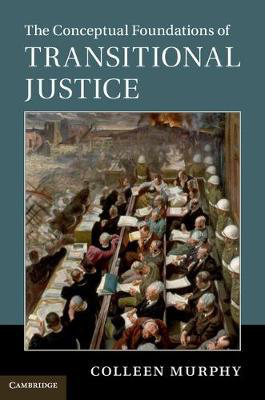
3:AM: You’re an expert in transitional justice. Can you begin by sketching for us what this is generally taken to mean, and some of the places where it applies?
CM: Transitional justice is generally taken to refer to the formal and informal processes adopted to deal with wrongdoing that occurred during periods of conflict and/or repression. The wrongdoing of interest consists in human rights violations that are characteristically widespread, often systematic, and implicates state agents. This is the thinnest definition of transitional justice. A thicker, very common definition includes reference to the timeframe in which processes for dealing with wrongdoing are adopted, namely during an attempted transition away from such conflict and/or repression. The thickest definition includes the aspiration to democratize as a constitutive aim of the attempted transition.
Transitional justice has applied or currently does apply to dozens of societies around the globe. In South and Central America, transitional justice has been an issue following military juntas in places like Argentina and Brazil; and following extended civil wars in countries such as Guatemala and El Salvador. Transitional justice is currently one of the central political questions in Colombia, as transitional processes to deal with wrongdoing committed during the fifty plus years of conflict between the Colombian government and the Revolutionary Armed Forces of Colombia (FARC) are being established per the terms of the to End the Armed Conflict and Build a Stable and Lasting Peace. The Americas are not the only place where transitional justice has applied or does apply. In Asia, Sri Lanka and Cambodia continue to deal with questions of transitional justice. In Africa, the Truth and Reconciliation Commission (TRC) in South Africa, established to deal with past wrongdoing as part of that transition from decades of apartheid to democracy, has had a profound impact on the scholarship and practice of transitional justice. Other countries in Africa that have or are pursuing transitional justice include Sierra Leone, Tunisia, Rwanda, and Libya. In Europe, the reunification of Germany raised questions of transitional justice, as did the breakup of the former Yugoslavia. Northern Ireland continues to grapple with the question of transitional justice.
3:AM: Your focus is not on the various social outcomes of different legal responses to wrongdoings however, but is rather about the moral evaluation of the choices these transitional communities make in dealing with wrongdoing. Can you spell out for us the distinction here? Why do you think this is of importance?
CM:Transitional justice is a multidisciplinary field of inquiry and practice within which lawyers and social scientists are most represented. The vast majority of the literature on transitional justice uses social scientific methodologies to understand what happens, and why, in particular transitional contexts. For example, studies identify the factors that influence which transitional justice processes are chosen, such as how a conflict ended (e.g, with complete defeat of one side or a negotiated transition) and the actors influencing the selection. In the latter case, emphasis is placed on the priorities of development organizations, INGOs, as well as international bodies like the International Criminal Court. Much scholarship is case study specific and examines the effects of processes on a transitional society, the extent to which processes are gender-sensitive, and identifies obstacles to participation in transitional justice processes (e.g., by members of certain social groups). Legal scholarship also includes debates over the compatibility of certain transitional justice processes (and in particular amnesty provisions) with international law.
This scholarship is fundamentally descriptive, identifying what in fact happened or in fact shaped the choices made and the actual consequences these choices had for particular communities. Many studies also advance normative claims, articulating for example prescriptions for what should have happened or what should happen in the future to avoid certain specified problems.
An important gap in these analyses, which my account tries to make some progress towards filling, is critical discussion of the normative standards themselves. Very often, the normative orientation underpinning analyses in the literature on transitional justice is simply assumed or goes uncontested. Critiques of processes as insufficiently attentive to gender, for example, implicitly presume the necessity of gender-sensitivity. As a philosopher, normative claims are of interest in themselves. But in the context of transitional justice, critical evaluation and defense of normative claims matters for an additional reason: they are a source of deep disagreement. Divergent and incompatible judgments about processes by citizens and by observers of transitional justice processes often reflect at their core disagreements about what morality demands in transitions. There are debates about what the goal of particular processes of transitional justice should be: forgiveness, retribution, restorative justice, peace, deterrence, ending impunity, social unity, and/or economic justice. Disagreement about overall aim leads in turn lead to disagreements about the defensibility of certain responses to wrongdoing. If retributive justice is the standard for moral success in responding to wrongdoing, then any process for dealing with wrongdoing that does not entail punishment becomes prima facia morally suspect. By contrast, if the aim is forgiveness, then punishment may be beside the moral point.
Moral disagreements about the values to be promoted by transitional justice processes cannot be adjudicated by social scientific analyses of the outcomes of specific processes. Such analyses cannot be themselves tell us what the moral goal of any process should be. Social scientific analyses can tell us what will be effective given a certain goal. This is why philosophy is- and should be seen as - a necessary and ineliminable part of the scholarship of transitional justice.
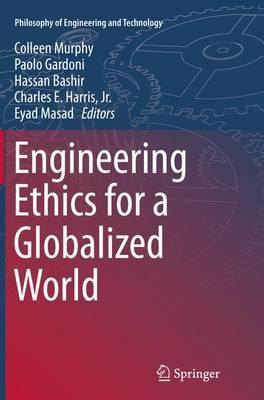
3:AM: South Africa is a case where this issue has been and still is a huge issue. Can you say something first of all about the way South Africa decided to manage its post-apartheid situation and what issues regarding justicewere raised by this response and using this as an example say what are the pragmatic and moral challenges of these transitional situations?
CM:South Africa formally transitioned from apartheid to democracy in 1994. As part of the discussions that enabled the transition to take place, a commitment to amnesty for those implicated in wrongdoing was agreed upon. This agreement was reflected in the Interim Constitution that paved the way for the first democratic elections. While amnesty was a commitment, the scope and form of amnesty to be adopted was left open. The democratically-elected South African Parliament decided to tie this amnesty to the process of the Truth and Reconciliation Commission (TRC) it established in 1995. This TRC was charged with documenting killing, abduction, torture, and severe ill-treatment that had been committed for political reasons by South African government agents as well as members of anti-apartheid groups from 1960-1994. The TRC amnesty was individualized; individuals were eligible for amnesty if they came forward and fully disclosed the details of the wrongs in which they were implicated and could establish that those wrongs were committed for political reasons. More than 7,000 applied for amnesty and eventually a little over 800 were granted amnesty.
Amnesty granted precluded criminal and civil forms of liability, and unsurprisingly the TRC was the subject of extended discussion in many disciplines including philosophy. For the philosophers who considered the TRC, the question became: on what basis, if any, is the granting of amnesty morally justified? Various answers were offered, all of which engaged with the practical and moral constraints that existed in South Africa and that exist to some extent in every transitional context. Practical constraints include the simple fact that no criminal justice system has the capacity to deal with thousands or tens of thousands of perpetrators all at once. Criminal justice systems are designed to deal with wrongdoing that is the exception and not the rule. This lack of capacity is even more pronounced in contexts in which the criminal justice system itself is in need of substantial reform. In addition, choices made for dealing with wrongdoing in transitional contexts can have significant implications for the society as a whole. Peace may be jeopardized or reconciliation may become (im)possible depending on the choice(s) of process(es) adopted. Commitments made prior to a transition, like the South African commitment to amnesty, can additionally constrain the available modes of accountability.
One kind of moral justification of the TRC adopted the TRC’s own explicit justification of its work, arguing that amnesty was defensibly granted because the TRC promoted reconciliation and restorative justice through the truth it documented; advocates of this line of argument disagreed about whether amnesty entailed the sacrifice of justice or whether restorative justice was the only relevant justice to take into account. Another line of argument framed the TRC as a morally defensible and principled compromise among competing values such as reconciliation and retributive justice. Critiques of the TRC not only took issue with the lines of argument just sketched, but also with the specific choices made in devising the structure and mandate of the TRC. Mahmood Mamdani influentially argued that focusing on wrongdoing from 1960 instead of the beginning of apartheid in 1948 entailed that the violence utilized to implement major portions of apartheid policies did not qualify as wrongdoing. The choice of “killing, abduction, torture, and severe ill-treatment” and the interpretation of “severe ill-treatment” rendered invisible as wrongdoing the ordinary violence that black South Africans living under apartheid routinely suffered, from forced removals, to pass laws restricting freedom of movement of black South Africans, and discriminatory wages. Almost twenty-five years after the end of apartheid, political discussions in South Africa today focus on changing the constitution to allow for “land expropriation without compensation.” This principle remains politically controversial, but one prominent justification is that it a way of addressing the legacy of economic inequality and economic injustice that transitional justice processes did not adequately address.
3:AM: South Africa had Mandela and Tutu, plus the African notion of Ubuntu as resources – how significant were these figures and this culture to the success of the transition and how can there be success in getting justice and in situations lacking figures of the stature of these two and the culture that values interconnectiveness? I guess the issue is whether South Africa can serve as a mode for transitional justice given these untypical resources – and now these figures have gone are we not seeing problems emerging – a lot of violence and a lot corruption?
CM: The questions of whether the South African model of transitional justice could be exported to contexts without analogous figures of Mandela and Tutu and cultural notions such as “ubuntu” (or as you put it interconnectiveness) took up considerable attention in the literature. I cannot speak to how influential Mandela and Tutu were, nor to the influence of ubuntu itself, other than to say that these figures and that concept without doubt influenced the success of the transition in South Africa. As a result in part of a shift in emphasis in the literature from the role of elites to the role of more local actors and in part the fact that there have been many transitions since South Africa’s without analogous figures, the question of the necessity of figures of the stature of Mandela and Tutu has become much less emphasized.
I would not necessarily say that issues you cite were not there before or are only now an issue because of the departure of Tutu and Mandela. That’s certainly not true in the specific case of violence. Part of what the TRC report made clear was that extraordinary violence (in the form of killing, abduction, torture and severe ill-treatment) was a central part of apartheid itself. Over 20,000 victims were killed for political reasons during the period of 1960-1994 alone. Those victims were killed at the hands of South African government security forces as well as members of armed groups opposing the apartheid regime. Violence may take different forms than before, be less pollical, and may target different individuals. But violence itself is not new in South Africa.
3:AM: You say that traditional expectations of justice won’t work in such situations. Before you explain why, can you sketch for us what you take these expectations to be?
CM: I take the “traditional” expectations of justice when it comes to wrongdoing to refer to the standards of justice laid out by theories of retributive justice and corrective justice. For perpetrators, the normative expectation of justice is that they should be punished. The absence of punishment is taken to demand an explanation, for example in the form of excusing conditions that imply that an individual should not be held responsible for the wrongdoing that occurred. For victims, corrective justice requires that the status quo ante before wrongdoing occurred be restored. Specifically, the wrongful losses to which a victim was subject should be compensated, (ideally) by the perpetrator responsible for wrongdoing.

3:AM: And if punishment is a large part of this, are you saying that punishment can’t satisfy justice in these situations? That seems controversial: some think that not punishing those who have committed atrocities is just the opposite of justice, not a different kind of justice. Why are they wrong? Aren’t we just subordinating the interests of victims to those of the community?
CM: In my view, punishment can satisfy justice in transitional situations. However, my answer is different than the retributivist’s answer to your question for two reasons. First, I do not believe punishment is the only process that can satisfy justice in transitional contexts, as positive retributivists claim. Second, in my account punishment is not justified by the appeal to the claim that this is something perpetrators intrinsically ‘deserve.’
In my work I defend the view the transitional justice is its own type of justice, not reducible to the claims of retributive, corrective, or distributive justice or some combination of these and other kinds. My argument for this view draws on the idea of circumstances of justice first articulated by David Hume. I argue that in the circumstances of justice that are characteristically found in transitional societies, the problem of justice is not the problem these traditional theories of justice take up and the standards of justice to be satisfied by a response to wrongdoing are not the standards set by these theories (more on this below).
Transitional societies are characterized by deep inequality in the opportunities open to different groups of citizens to do and become things of value (e.g., being educated or employed) and in the ability of different groups of citizens to shape institutional rules themselves (what I call pervasive structural inequality). Violations of human rights committed for political reasons by political agents become a basic fact of life around which citizens must orient their conduct (what I call normalized collective and political wrongdoing). The future political trajectory of a transitional community is in serious flux (what I call serious existential uncertainty). The standing of the state to deal with wrongdoing needs to be established given that state agents are implicated in the wrongs being addressed (what I call fundamental uncertainty about authority).
In the circumstances, I argue, the problem of justice is: what constitutes the just pursuit of societal transformation? I take it this is the core question that was facing South Africa after apartheid, Germany after the fall of the Nazi regime, and Colombia as it navigates an end to half a century of conflict. A theory of transitional justice articulates in what societal transformation consists, and the conditions that must be satisfied for such transformation to be pursued justly. I define societal transformation relationally, linking its pursuit with a common objective in transitional contexts, namely reconciliation. “Justly” pursuing transformation requires meeting a number of objectives that are associated with moral responses to perpetrators and victims of wrongdoing. For perpetrators this includes condemning their actions as wrongful, holding them accountable by judging them to be responsible for the wrong and ideally providing conditions under which perpetrators can make amends, and more generally contributing to non-recurrence. There are a number of further conditions which influence whether a response to perpetrators is just in the sense of being fitting and appropriate. These factors to consider include the relationship between responder and the subject of a response (e.g., permissible forms of response to a spouse who has done wrong may not be permissible for a state to adopt as a response to perpetrators); the nature of the wrong (e.g., as political or not); the cultural context in which the response is adopted. Many of the aims of just treatment are fundamentally expressive, concerned with recognition, acknowledgement, respect. Cultural norms for what constitutes recognition of another as a member of one’s community or acknowledgement of an action as wrongful can influence whether a response to wrongdoing succeeds in fulfilling its moral aims. These further conditions, but especially this last condition, entail that no single response to wrongdoing uniquely counts as just.
Returning then to the question of punishment: in my view, there can be modes of accountability for perpetrators of wrongdoing that are not punishment but which do contribute to societal transformation and do treat perpetrators appropriately. Which mode of accountability is defensible in a given context may be influenced by what victims want vis-à-vis perpetrators, but it is not the case that victims always want punishment. Some victims do, while others may prioritize reparation if a choice must be made between these two modes of response. Satisfying the moral claims of victims is also an independent requirement of transitional justice, as articulated in the conditions that need to be met for victims to be treated justly. For these reasons, transitional justice does not entail subordinating the interests of victims to those of the community.

3:AM: What do you say to those who say that the real reason amnesty rather than prosecution is used in some situations of transition is merely pragmatic: there just isn’t the legal machinery nor the political will to enact traditional justice? These people argue that this isn’t justice at all, and is not motivated by morality at all.
CM:There is nothing in my account that precludes this scenario, so I can grant the move to amnesty has been historically or may be in the future motivated exclusively by pragmatic considerations. My account does not claim to provide an universally descriptive characterization of the actual motivations of actors in transitional circumstances. However, in looking at the motivations behind choices of mechanisms to adopt, what I would deny is the claim that pragmatics or lack of legal machinery or absence of political will are the only reasons behind the choice to adopt an amnesty and that nothing further by way of moral defense can be said.
There can be and have been moral reasons to adopt an amnesty provision. A concern for facilitating a transition away from a system of repression and oppression can be a moral, and not just pragmatic, consideration. Amnesties can themselves serve as mechanisms of some degree of accountability if the granting of amnesty requires an explicit, public assumption of responsibility for wrongful actions on the part of a perpetrator seeking amnesty. When amnesties require an assumption of responsibility in the form of providing complete details of the wrongs in which one is implicated, a society’s understanding of the conditions that enabled wrongdoing to take place on a large scale can be enhanced. This in turn can increase knowledge of what must change for wrongdoing not to be repeated.
3:AM: Why do you say that transitional justice isn’t a compromise, in particular why it isn’t a compromise between truth and justice as some people think?
CM: Part of the motivation for making this claim is that in my view the labeling of transitional justice as a compromise between truth and justice is done too quickly. It is too quick in the sense of presuming that the standards for “justice” that are salient in such contexts are the standards of familiar forms of justice like retributive justice. I argue in the second chapter of my book that this is a mistake. And it is too quick in assuming that truth and justice are necessarily distinct values that come into conflict. If we refuse to use punishment as the sole measure of justice and if we instead think of transitional justice as requiring the transformation of relationships, then truth about the root causes, extent, and impact of wrongdoing can be absolutely essential for realizing justice so defined.
As I clarify in my conclusion, rejecting the idea that transitional justice is best conceptualized as a simple compromise between truth and justice is not to reject the claim that transitional justice can involve compromises. However, I locate compromises in a different place than the truth versus justice picture you sketched above. Compromises may need to be made when prioritizing which dimension of relational transformation to pursue (e.g., whether you pursue fostering conditions for trust, enhancing or developing the rule of law, and/or genuine opportunities to avoid poverty). The dimensions of relational transformation need not be conceptualized as fundamentally incompatible; indeed at times they can be mutually reinforcing. But it may be necessary to prioritize trust and leave the mitigation of poverty for future processes, or vice versa. Issues of compromise will also arise when deciding the appropriate balance to strike between the requirements for fitting and appropriate treatment of perpetrators and victims in transitional justice processes, on the one hand, and the demands of relational transformation on the other. Choices in how fitting a response to victims may be versus how robustly relational transformation may occur may be necessary.
3:AM: Your view is that we can’t sufficiently adapt theories of familiar kinds of justice to be applicable to all contexts because theories of justice always presuppose a set of background conditions that explain and shape the justice problem to which the specific principles of justice are responsive. Can you flesh this out a bit for us. Is it a version of relativism and as such do you think there are no universally applicable principles of justice? On the face of it a theory that said ‘all rapists and murderers should be punished’ seems context free and perfectly reasonable. Why isn’t it?
CM: I will start with the reasonableness of “all rapists and murderers should be punished.” While some retributivists may claim that the retributive principle articulated in that statement reflects a brute intuition, most retributivists recognize that more must be said in defense of the retributive principle as a principle of justice. Such retributivists find it necessary to respond to skeptics of retributivism for whom “all rapists and murders should be punished” is not a reasonable demand, but rather the unreasonable reflection of a brute desire for revenge that human beings harbor when they have been wronged and moreover an illegitimate exercise of power by the state.
Theories of retributive justice seek to explain why punishment is morally permissible for the state to inflict, and how it is morally different from wrongdoing despite involving the intentional infliction of suffering. My claim about the limits of applicability of theories of justice is a claim that is defended by looking at the context that is implicitly assumed by defenses of retributive justice. I claim that the problematic established by retributivists (e.g., that punishment is prima facie morally problematic for the state to inflict because it seems incompatible with respect for the equality of all citizens) presumes a background situation of equality that is not present in transitional contexts. Moreover, the plausibility of claiming, as Jean Hampton does, that the moral equality between perpetrator and victim which wrongdoing disrupted can be re-established by punishment depends on an implicit assumption that the only threat to equality in the relationship between perpetrator and victim comes from the wrongdoing itself. In that case, countering wrongdoing removes the obstacle to inequality. But where wrongdoing is the product of many agents and where there is no background relationship of equality between perpetrator and victim, then there is less reason to believe punishment will be sufficient for establishing equality that did not previously exist.
Philosophers, especially in the analytic tradition, are not trained to think about the implicit limits on the claims being advanced. This is unsurprising since our interest is in identifying general principles of justice. Taking seriously context and talking explicitly about limits of application is in keeping with philosophers like Hume and the later John Rawls; it is not necessarily heading down the road of relativism. It rather reflects the need to understand how context necessarily shapes the contours of a moral problem which principles of justice provide guidance in addressing.
3:AM: What’s restorative justice and why don’t you think that transitional justice should be reduced to or equated with it? If you don’t you think transitional justice isn’t about retributive, corrective or distributive justice either, what is its objective and how does it relate to the normative frameworks of rule of law, political justice and capabilities?
CM:Restorative justice refers to a loose collection of practices that share underlying commitments, including direct participation of offenders and victims in processes for dealing with wrongdoing; an emphasis on offender’s coming to acknowledge the offense and their responsibility for it; joint efforts to identify ways for the harm to be repaired; and reintegration of offenders into communities. The scholarship articulating the underlying theory of restorative justice argues that such practices are oriented around facilitating apology by offenders and forgiveness by victims so as to achieve reconciliation in the relationships ruptured by wrongdoing.
I do not think transitional justice should be equated with restorative justice for two reasons. First, the theory of restorative justice requires further elaboration and clarification; scholars disagree for example about whether punishment is compatible with restorative justice commitments. Second, and more fundamentally, I find the emphasis on forgiveness problematic in transitional contexts. A call to forgiveness in the context of ongoing relationships is most plausible when relationships are predicated on morally defensible terms. However, our intuitions shift when the call for forgiveness is made in the context of a domestically abusive relationship, for example. Then, to urge forgiveness risks encouraging an individual being abused to capitulate and accept the abuse, fails to take seriously the claim of such individual to better treatment, and does nothing to address the fundamental problem: the abusive treatment by the abusive partner. As this example illustrates, context influences what intuitive judgments we have about responses to wrongdoing. Transitional contexts are more analogous to the context of an abusive domestic relationship. The terms for interaction themselves are fundamentally in need of transformation. Prioritizing forgiveness, especially if prioritized by the state by making forgiveness an aim of transitional responses, risks failing to take seriously the wrongful treatment to which victims were subject and incorrectly locates the problem. Victims have a right to be angry and resentful when wronged; the fundamental problem in transitional contexts is not anger and resentment per se but wrongdoing and the conditions that enabled wrongdoing to become normalized. I have no objections to individual victims choosing to forgive; that can be laudably done as a matter of individual choice for a number of reasons. My objection is to having that constitute a condition for the success of transitional justice policies.
I discussed in my previous answer why I find it problematic to use retributive justice as a guide to transitional justice. Let me say a couple of brief things about corrective and distributive justice. Corrective justice presupposes a standard of reasonable conduct that is the baseline against which wrongful losses in need of compensation are measured. However, the standard of reasonable conduct itself is precisely what is in need of revision in transitional societies. In addition, there can be reasons of justice not to engage in the sort of precise assessments of proportionate compensation owed to victims which corrective justice advises; to do so risks engaging in a deeply problematic form of victim comparison as you assess, for instance, who suffered greater losses as a result of being raped, when rape is used as an instrument of war. Theories of distributive justice articulate principles governing the perfectly just allocation of goods within a community. However, settling on the question of the perfectly just allocation of goods is beside the point in transitional contexts; by whatever measure of perfect justice you select the distribution of goods is in need of revision. Moreover, the pursuit of greater distributive justice requires grappling with problems (such as how to balance existing claims to property as recognized by a regime of property rights against historical dispossession of property) that theories of distributive justice provide no guidance for resolving.
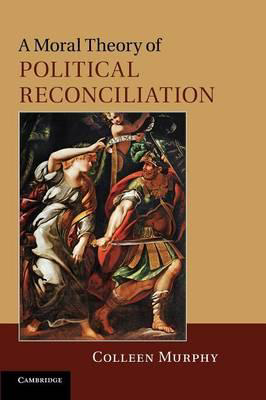
3:AM: Does your idea about transitional justice converge with your thinking around political reconciliation? How do international criminal trials support the repair work required after civil conflicts or wars, for example? What’s the criteria of success in this kind of justice?
CM: My thinking about transitional justice and what it entails grew out of my thinking about political reconciliation. Dan Philpott pressed me in a book review of my first book (A Moral Theory of Political Reconciliation) on the relationship between reconciliation and justice. This motivated me to try to figure out how I understood the relationship, a task which took seven years to complete! The answer I offer in my book is that reconciliation is a constitutive dimension of transitional justice; indeed, it is the overarching aim of transitional justice processes. What is necessary and becomes possible to pursue in transitional contexts is transformation in the relationships among citizens and between citizens and officials. This transformation requires repairing political relationships that are profoundly damaged as a result of repression and conflict; reconciliation is the process of repairing such damaged relationships.
3:AM: So are there general principles emerging out of your work that can guide the formulation, justification and critique of whatever policies are being made in pursuit of reconciliation by the state?
CM: Yes. The principles are articulated in chapters 3 and 4 of my book on transitional justice. In brief, criteria for evaluating whether relational transformation is being facilitated by transitional justice processes include the following: establishing conditions for an increase in trust among citizens and between citizens and officials; enhancing the rule of law; and fostering conditions for threshold levels of opportunities for citizens to be respected, recognized as members of the political community, participate in political institutions, and avoid poverty. In addition to looking at the contribution of processes of transitional justice to relational transformation, it is also critical to examine whether perpetrators and victims who are participants in such processes are treated justly according to the criteria laid out in answer 7.
When using these criteria it is important to keep the following in mind: the evaluation of any particular set of policies will require deep contextual knowledge of the specific society under consideration. Certain priorities of relational transformation may be more pressing than others, given the history of conflict and/or repression and the nature of wrongdoing that took place. In addition, relational transformation is not something any single process of transitional justice could ever achieve. Transformation is a process that will in most cases require generations to fully or even substantially promote. Thus the justification or critique of any particular process cannot be based on a presumption that it could “achieve” transitional justice. Rather, justifications and critiques must examine what dimension(s) of relational transformation were (or were not) facilitated and what dimensions were left unaddressed.
3:AM: Obviously this all takes place in a specific context where, as we noted earlier, the usual expectations regarding justice can’t be implemented for various reasons. But looking at the giant prison populations in the USA and China, for example, do you think the criteria and principles you identify for transitional justice might have application in situations that aren’t unstable – that reconciliation rather than punishment might be a more just response even in these settled situation?
CM: Yes. Transitional justice pushes us to think about why we are responding to wrongdoing, the link between those aims and the form(s) a response to wrongdoing take(s), as well as the link between wrongdoing and background institutional structures. As the scholarship and practice of transitional justice attest, there are many possible forms that responses to wrongdoing may take. Punishment is one form, but it is not the only form, and it may not even be the best form depending on what your purpose in responding to wrongdoing is.
Transitional justice also expands the aims we can see responses to wrongdoing fulfilling, to include one that you mention, namely, reconciliation. With the inclusion of reconciliation there is immediately an awareness of the fact that perpetrators of wrongdoing have and will continue to have relationships of many kinds- with particular victims in some cases, with a broader community, and with themselves individually. This awareness can counter problematic impulses, especially in the United States, to permanently ban perpetrators of criminal wrongs from a community, either in the form of life sentences without possibility of parole or in the form of permanent barriers to participation being in place once convicted criminals have served their time. Barriers to employment, housing, and voting are some of the ways that the United States effectively prevents prisoners from reintegrating into the life of their community once released. Transitional societies offer a stark contrast with these features of criminal justice in the United States. Perpetrators in transitional societies are not banned, but by and large remain within communities. Sentences served are characteristically much shorter and for a much smaller percentage of perpetrators. Thus, transitional communities navigate a way of managing communal life with those who have committed serious wrongs. Such navigation is fraught, complex, and not always successful; but the efforts of transitional societies can and should inform efforts to reform criminal justice in the United States. Finally, the mutually reinforcing links between wrongdoing and background structural inequality in transitional societies offers resources for problematizing both which wrongs get criminalized in the United States, and the disproportionate representation of Americans of color, especially black Americans, in our prison system.
3:AM: And finally, are there five books other than your own that you can recommend to readers here at 3:AM that will take us further into your philosophical world?
CM:

Rosemary Nagy, Melissa Williams, Jon Elster (eds.), NOMOS LI: Transitional Justice(New York: New York University Press, 2012)
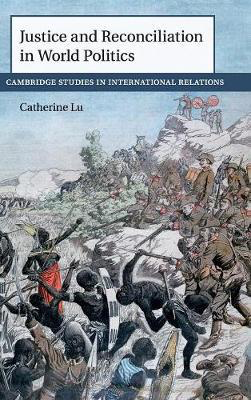
Catherine Lu, Justice and Reconciliation in World Politics (New York: Cambridge University Press, 2018)
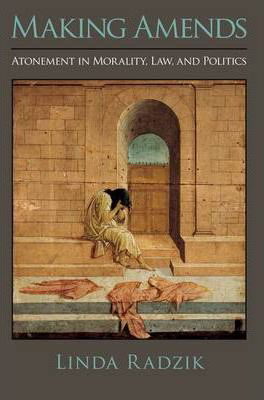
Linda Radzik, Making Amends: Atonement in Morality, Law, and Politics(New York: Oxford University Press, 2011)
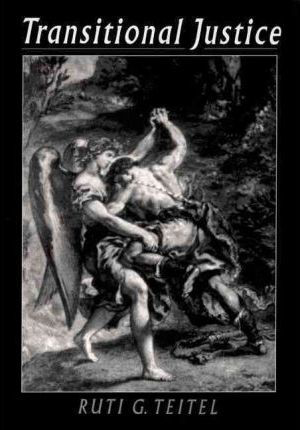
Ruti Teitel, Transitional Justice (New York: Oxford University Press, 2002)
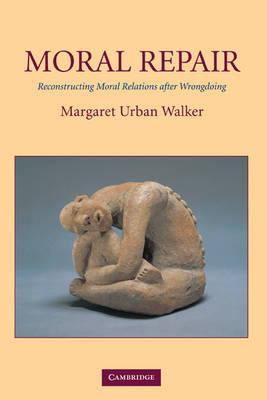
Margaret Urban Walker, Moral Repair: Reconstructing Moral Relationships after Wrongdoing (New York: Cambridge University Press, 2006)
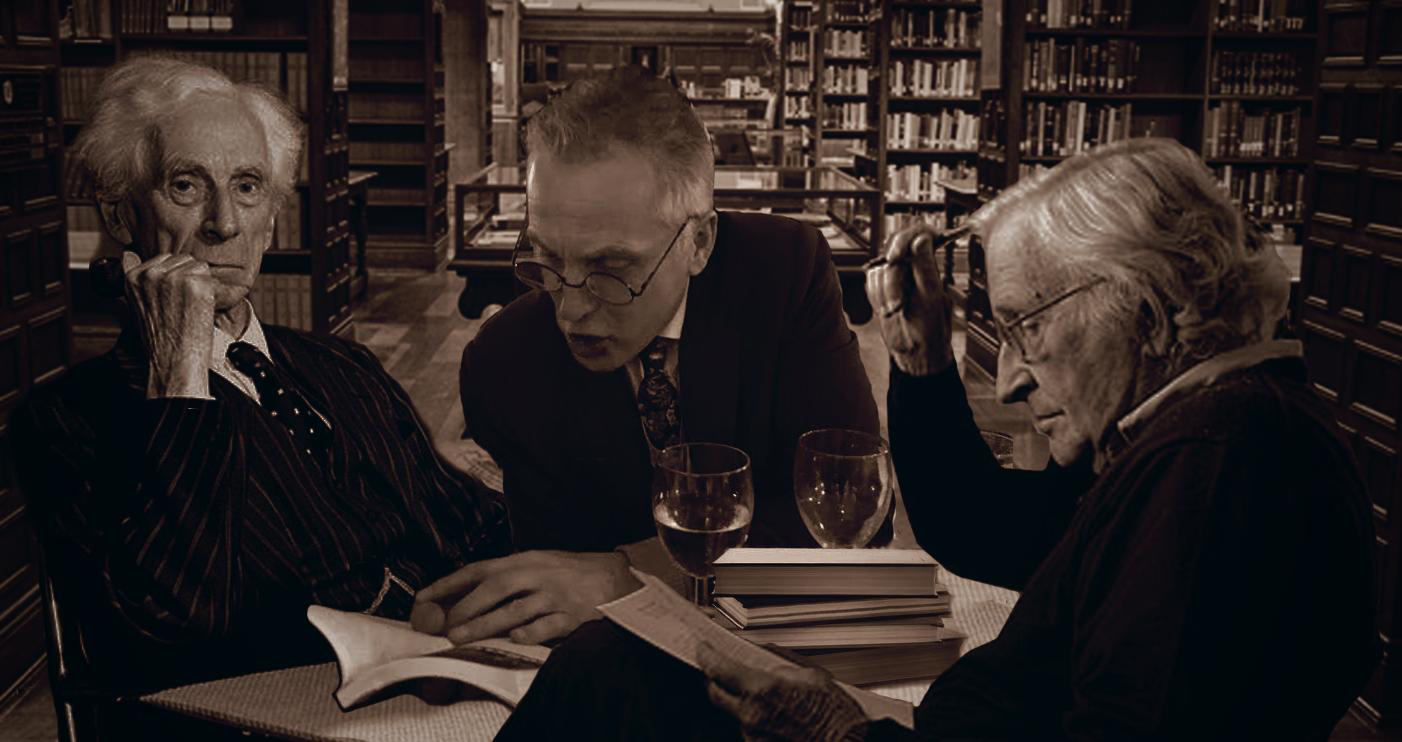
ABOUT THE INTERVIEWER
Richard Marshall is biding his time.
Buy his new book here or his first book here to keep him biding!
End TimesSeries: the first 302